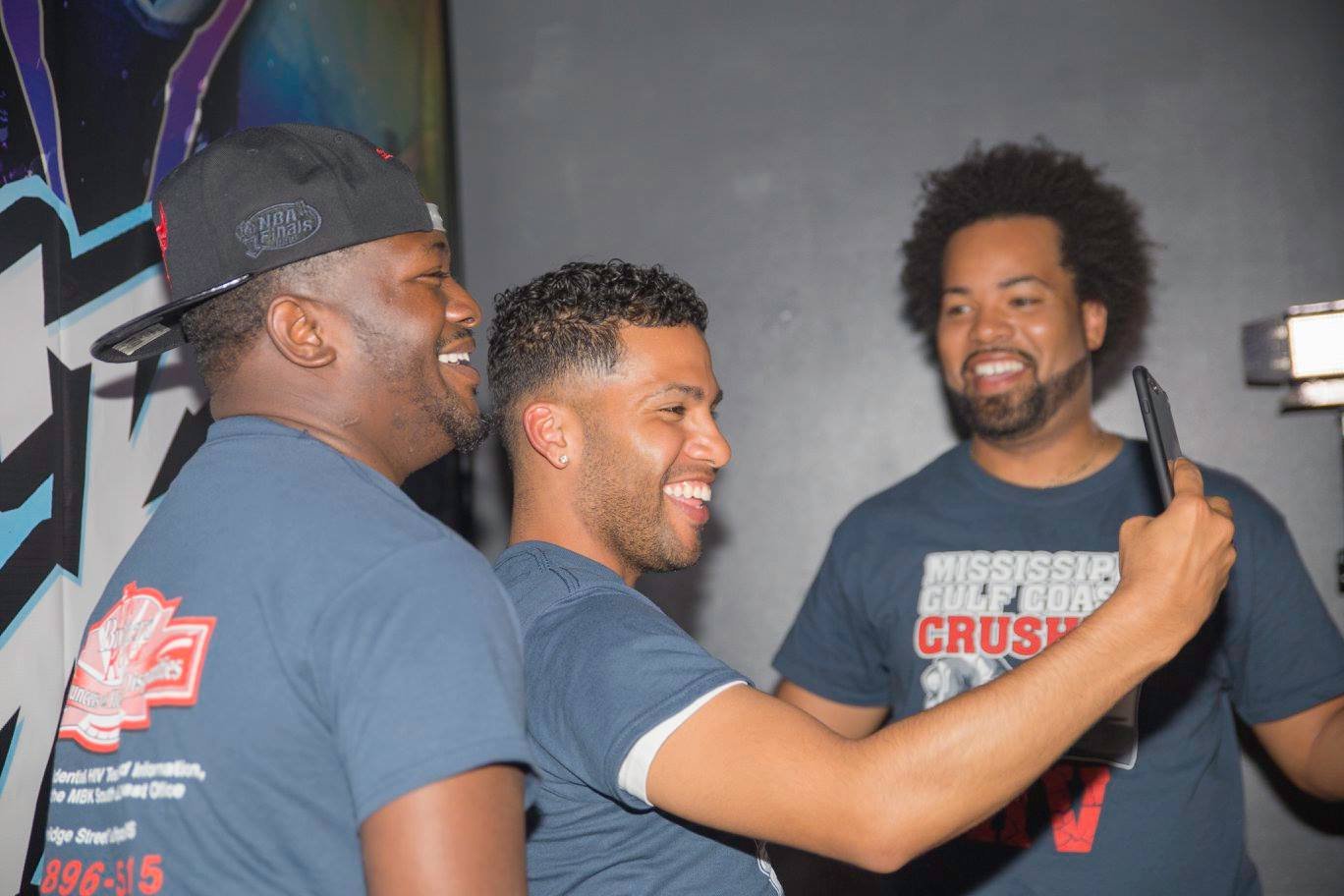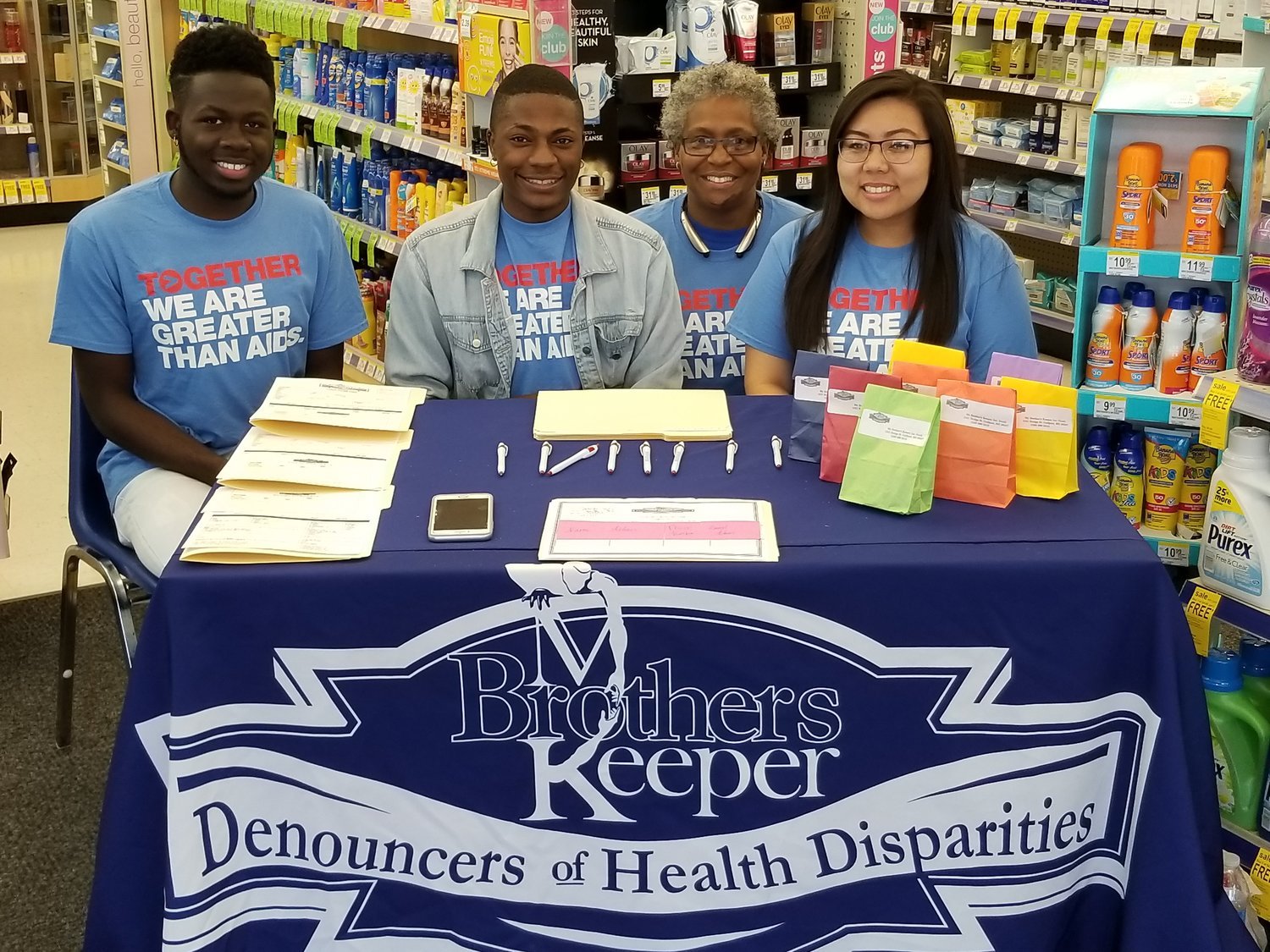Shame and Jesus: HIV/AIDS Outreach in Jackson, Mississippi
PHOTOS COURTESY OF MY BROTHER’S KEEPER
In his State of the Union address earlier this year, Donald Trump touted the strides his administration intends to make against the epidemic of HIV/AIDS in “the United States and beyond.”
This was despite the President previously proposing over $100 million in cuts to domestic HIV/AIDS outreach programs and slashing the United States’ contributions to global budgets fighting the epidemic.
In the face of this, efforts to end the epidemic on the ground are even more urgent. Deja Abdul Haqq knows this.
As the Director of the Office of Organizational Development for My Brother’s Keeper, Abdul Haqq works to “reduce health disparities throughout the United States by enhancing the health and well-being of minority and marginalized populations” in Jackson, Mississippi.
With a statewide culture deeply rooted in Christianity and an unignorable history of racial disparities, the implicit sexual aspects of addressing the epidemic of HIV/AIDS often stifle the conversations that must occur in the city that, last year, was number four in the nation for HIV infection rates. Consistent with the rest of the United States, Jackson’s HIV rates disproportionately affect queer black men.
“The biggest hurdle that we have as far as HIV disparities,” Abdul Haqq says, “is we are not talking about sex. And in those moments where we are talking about sex, those moments are completely devoid of LGBTQ use.” In accordance with state law, abstinence only or abstinence plus programs are the only sex education that can be taught in public schools. There is virtually no mention of queer sexual practices in these programs.
She blames this on a culture of “shame and Jesus.”
“This whole idea that in order to be holy, you have to be in a monogamous relationship or the ideals of a fairy tale relationship. In reality, everybody’s doing everything and nobody’s talking about anything.”
Working with My Brother’s Keeper, Abdul Haqq helps to promote useful education, wider testing opportunities, and greater prevention awareness. No opportunity to educate is too small in the face of an epidemic.
“If I’m at the drive through window and you’re taking too long, I’m going to ask if you’ve heard about PrEP.”
The historical stigma of queerphobia in the state proves to be an obstacle as well. "The whole evolution of sex and gender identity really hasn't taken root in our rural communities,” Abdul Haqq told WLBT last year. "A lot of our young people are growing and evolving and don't really have anyone to talk to...Not only can they not talk about the sex that they thought about, they can't talk about the sex that they had, and they definitely can't talk about the STI or HIV that they've been exposed to."
In his first year in office, Donald Trump fired all officials working for the Presidential Advisory Council on HIV/AIDS.
But if the Trump administration is actually dedicated to ending the epidemic, Abdul Haqq is willing to work with them. “It’s interesting to know that this administration is dedicated to ending the epidemic, but federal funding for ending the epidemic was drastically cut in 2018….We’re hopeful that the Trump administration will follow through in a realistic, and culturally sensitive way, but you have to take into account the groups that are more susceptible to HIV exposure.”
Whether the Trump administration intends to keep its promises, however, doesn’t play a factor into Abdul Haqq’s and My Brother’s Keeper’s determination to save lives and inform communities routinely dismissed in the healthcare industry in Mississippi and across the country.
“I believe we can do it, end the epidemic. But we means all of us...Mississippians, Americans, gay, straight, bold or afraid, certain and confused. We should all get tested. Once we know our status, do what we need to stay negative (e.g. condoms, PrEP). If we are positive, get into care and get those viral loads low to promote wellness and reduce transmission. But no matter our HIV status, sexuality or gender, race, the South—especially Mississippi, especially Jackson—we have to invest in each other.”
—
Evan Brechtel is a queer writer living in New York. You can find his body of work at www.evanbrechtel.net. @EvanBrechtel.
Archive
- February 2025
- November 2024
- October 2024
- September 2024
- August 2024
- July 2024
- June 2024
- May 2024
- April 2024
- October 2023
- July 2023
- June 2023
- May 2023
- April 2023
- March 2023
- February 2023
- June 2022
- April 2022
- March 2022
- January 2022
- December 2021
- October 2021
- September 2021
- August 2021
- July 2021
- June 2021
- May 2021
- April 2021
- March 2021
- February 2021
- January 2021
- December 2020
- October 2020
- September 2020
- August 2020
- July 2020
- June 2020
- May 2020
- April 2020
- March 2020
- February 2020
- January 2020
- December 2019
- November 2019
- October 2019
- September 2019
- August 2019
- July 2019
- June 2019
- May 2019
- April 2019
- March 2019
- February 2019
- January 2019
- December 2018
- November 2018
- October 2018
- September 2018
- August 2018
- July 2018
- June 2018
- May 2018
- April 2018
- March 2018
- February 2018
- January 2018
- December 2017
- November 2017
- October 2017
- September 2017
- August 2017
- July 2017
- June 2017
- May 2017
- April 2017
- March 2017
- February 2017
- January 2017
- December 2015
- November 2015
- October 2015
- September 2015
- August 2015
- July 2015
- June 2015
- May 2015
- April 2015










